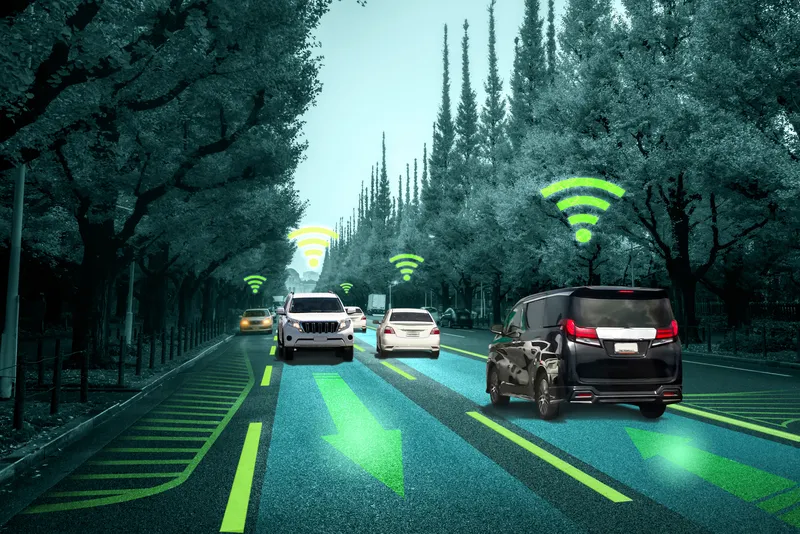LG Electronics (LG) and Intel are to collaborate on the development of 5G-based telematics technology, the next generation of wireless technology for cars. The two companies will utilise research and development expertise and leadership from both companies with the aim of being first to market with 5G ready solutions.
5G telematics delivers data more than 33 times faster than 4G LTE with latency expected to drop to about one tenth of current speeds. Software can be updated at high speeds through OTA (Ove
February 26, 2016
Read time: 2 mins
LG Electronics (954 LG) and 4243 Intel are to collaborate on the development of 5G-based telematics technology, the next generation of wireless technology for cars. The two companies will utilise research and development expertise and leadership from both companies with the aim of being first to market with 5G ready solutions.
5G telematics delivers data more than 33 times faster than 4G LTE with latency expected to drop to about one tenth of current speeds. Software can be updated at high speeds through OTA (Over The Air) networks while videos and other multimedia content will see faster downloads through the car’s infotainment systems.
Powered by V2X (vehicle to everything) technology, 5G’s reduced latency is possible even when cars are travelling at high speeds. Communication from vehicle to vehicle, vehicle to infrastructure or vehicle to pedestrian through 5G can help prevent accidents for a safer driving experience.
“By working closely with Intel we hope to build upon our leadership with LG’s next generation of 5G telematics products,” said Kim Jin-yong, president of LG Electronics’ Vehicle Components In-Vehicle Infotainment Business Unit.
“LG is an important vehicle component supplier for the joint research and development of 5G telematics”, said Aicha Evans, corporate vice president and general manager of the Intel Communication and Devices Group. “We believe the combination of LG connectivity leadership and Intel expertise in connected cars, sensor fusion and distributed deep learning will deliver innovative 5G technology for the car.”
5G telematics delivers data more than 33 times faster than 4G LTE with latency expected to drop to about one tenth of current speeds. Software can be updated at high speeds through OTA (Over The Air) networks while videos and other multimedia content will see faster downloads through the car’s infotainment systems.
Powered by V2X (vehicle to everything) technology, 5G’s reduced latency is possible even when cars are travelling at high speeds. Communication from vehicle to vehicle, vehicle to infrastructure or vehicle to pedestrian through 5G can help prevent accidents for a safer driving experience.
“By working closely with Intel we hope to build upon our leadership with LG’s next generation of 5G telematics products,” said Kim Jin-yong, president of LG Electronics’ Vehicle Components In-Vehicle Infotainment Business Unit.
“LG is an important vehicle component supplier for the joint research and development of 5G telematics”, said Aicha Evans, corporate vice president and general manager of the Intel Communication and Devices Group. “We believe the combination of LG connectivity leadership and Intel expertise in connected cars, sensor fusion and distributed deep learning will deliver innovative 5G technology for the car.”










